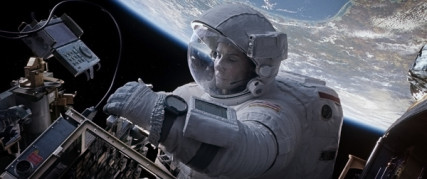
We all know wrong – or mostly so, says sociologist Elaine Howard Ecklund.
In the land of science, it turns out, there are nearly as many believers and churchgoers as there are to be found in the nation at large and many in each camp say science and faith have a lot to offer each other.
Sunday, the Dialogue on Science, Ethics and Religion program within the American Association for the Advancement of Science (AAAS) presented a major national study examining how these two worldviews do — and often don’t — communicate.
Indeed, Ecklund said her research finds that scientists who identify as evangelical are more religious than American evangelicals who are not in science and that 48 percent of evangelicals believe science and religion can work in collaboration. And right there at the DoSER symposium, to discuss collaboration in the future, was Galen Carey, vice president for government relations for the National Association of Evangelicals (NAE), which partnered with AAAS in the project.
Ecklund, director of Rice University’s Religion and Public Life Program, presented preliminary results of the study, “Religious Understandings of Science,” based on a survey of 10,000 U.S. adults including scientists, evangelical Protestants and the general public including 300 in-depth interviews with Christians (more than 140 of whom were evangelicals) Jews and Muslims.
Among the findings:
- Nearly 36 percent of scientists have no doubt about God’s existence
- 18 percent of scientists attended weekly religious services (compared with 20 percent of the general U.S. population)
- 15 percent of scientists consider themselves very religious (19 percent)
- 13.5 percent of scientists read religious texts weekly (17 percent)
But research also shows where the threads of suspicion run. A 2009 study by Pew Research found a wider gap between scientists and the general public on religion. And Ecklund’s new study also found:
- 22 percent of scientists and 20 percent of the general population think most religious people are hostile to science
- 22 percent of the general population thinks scientists are hostile to religion
- 27 percent of Americans feel that science and religion are in conflict
- Of those who feel science and religion are in conflict, 52 percent sided with religion
Read full post here.







These findings don’t surprise me. There are many tens of thousands of scientists even among the body touching on evolutionary topics, for instance, and there is no reason to suspect the average demographic differs much. Surveys of scientists as you move up the ladder to bigger fish (Nobel laureates and the ones doing cutting edge research) tend to drop lower on religiosity. Also many scientists who are quite devout are not necessarily doctrinally in the same spot as other believers (scientists who label themselves as Christians, for example, but who do not necessarily accept miracles or a virgin birth).
To the extent that religious concepts focus on philosophically undecidable (but nontheless vitally important) issues like meaning and ethics, while not tripping over scientifically decidable observations (as Young Earth Creationists do) there is no more need for conflict than there was over Copernicus or the opening of Deep Time in 19th century geology. I will have to get to my too-often postponed “NOMA Revisited” posting at Spokane Favs to expand on this, soon, promise, soon.